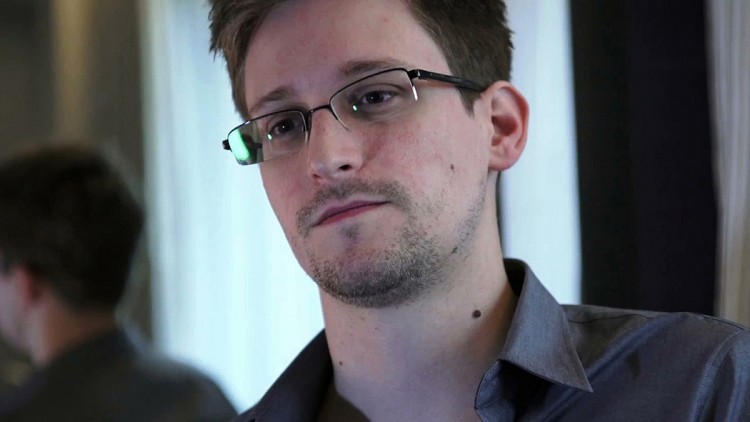Whistleblower Edward Snowden took around 13 questions from Twitter users during yesterday's Q&A period. During the session Snowden discussed a number of things ranging from stuff like the reason he chose to leak information, his thoughts on how the public should move forward now that this information is so out in the open, his future plans, and how "not all spying is bad."
"I think a person should be able to dial a number, make a purchase, send an SMS, write an e-mail, or visit a Web site without having to think about what it's going to look like on their permanent record," said Snowden during yesterday's session.
On the same day the Q&A took place the Privacy and Civil Liberties Oversight Board presented what some consider to be an unprecedented report putting NSA spying under fire once again. As Snowden made note of in yesterday's session, the PCLOB said the group is "aware of no instance in which the program directly contributed to the discovery of a previously unknown terrorist plot or the disruption of a terrorist attack." Snowden, agreeing with the PCLOB, said the "fact that these records are gathered without the government having any reasonable suspicion or probable cause justifying the seizure of data is so divorced from the domain of reason as to be incapable of ever being made lawful at all."
Snowden also wrote in his comments yesterday that he felt there was no good reason for the US intelligence community to conduct mass dragnet tactics like this on millions of American citizens. "The NSA and the rest of the US Intelligence Community is exceptionally well positioned to meet our intelligence requirements through targeted surveillance – the same way we've always done it – without resorting to the mass surveillance of entire populations," the former NSA contractor wrote.
He continued by saying that "Intelligence agencies do have a role to play...and the people at the working level at the NSA, CIA, or any other member of the [Intelligence Community] are not out to get you. They're good people trying to do the right thing, and I can tell you from personal experience that they were worried about the same things I was."
"Not all spying is bad," Snowden said. "The biggest problem we face right now is the new technique of indiscriminate mass surveillance, where governments are seizing billions and billions and billions of innocents' communication every single day. This is done not because it's necessary." He continued by saying that this kind of activity is "unprecedented in US history," and were in response "to a threat that kills fewer Americans every year than bathtub falls and police officers – but because new technologies make it easy and cheap."
Snowden first hit Hong Kong and then Russia once his story made headlines, but his asylum there will end soon. In response to questions regarding what he will do next, Snowden feels that returning to the US is in everyone's best interest but that a move of this kind is impossible under current conditions. Here's what he had to say on the matter:
"Returning to the US, I think, is the best resolution for the government, the public, and myself, but it's unfortunately not possible in the face of current whistleblower protection laws, which through a failure in law did not cover national security contractors like myself.
The hundred-year old law under which I've been charged, which was never intended to be used against people working in the public interest, and forbids a public interest defense. This is especially frustrating, because it means there's no chance to have a fair trial, and no way I can come home and make my case to a jury."
Snowden hopes that pushes from the PCLOB and others will bring Congress together to reform the Whistleblower Protection Act, allowing him and other Americans in the future a chance at a fair trial "no matter who they work for."
(Image via The Guardian)
